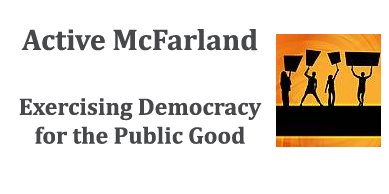Charles Cottle
The Republican dominated Congress of the United States has now condemned the United States to a kind of living hell. The U.S. Senate voted last week to reject the expansion of background checks for guns purchased online and purchases at gun shows. That means the only solutions the Congress, the National Rifle Association, and the motley assortment of Republican presidential candidates can offer to remedy the epidemic of mass shootings (more than one a day in 2015) are to pray for the victims, attend to the mentally ill, and arm every man and woman (and perhaps child) in the country. Because most terrorists and psychopaths attack with semi-automatic weapons, it makes sense (from the insane point of view) for every man and woman to have a semi-automatic rifle at the ready. At the very least, we should all be packing heat, everywhere, all the time.
Years ago R.D. Laing (1967) wrote in The Politics of Experience that only the truly insane could adapt to the world in which we live. Opponents of stricter gun control are now suggesting that we adapt to a world in which we must fear every person we meet, because they might be carrying a concealed weapon. In such a world, no one can be fully trusted. So, the best policy for each person is to carry a weapon also, just to be on the safe side.
During the time when R.D. Laing made his observations about insanity, presidents, college professors, and Sunday school teachers all believed that “mutually assured destruction” was good policy. What did it matter that we had (and still have) the capacity to destroy the earth many times over with nuclear weapons as long as both the United States and the Soviet Union understood that to launch a nuclear strike would bring mutual destruction? As long as our heads of state were rational self-interested individuals, there was no problem.
In this context it makes sense to reflect on the notion of the “unit veto” system described by Morton Kaplan (1957) in System and Process in International Politics. The unit veto international system is a truly nightmarish system in which each nation state on the planet has the capacity to destroy all the others. Imagine, for example, if each country had a nuclear weapon and could deliver it. Kaplan described such an international system as the most unstable we might imagine, especially since international politics operates in a “state of nature” which is a lawless environment. In this kind of world the only option for the heads of nation states would be to arm their states to the teeth and hope for the best.
Oddly enough, the opponents of gun control now argue that we are in a unit veto situation where each unit is a man or woman who can pull a trigger. At the international level, we want our leaders to do everything possible to prevent the spread of nuclear weapons. At the sub-national level, however, the opponents of gun control argue that we do the opposite and encourage the spread of arms. The only “rational” thing to do, in their view, is arm ourselves fully and (just as the heads of state in an international unit veto system) just hope for the best. Despite living in a society with established police forces and security personnel, their arguments against stricter gun control claim that we are in a state of nature in which there is a potential war of every person against every other, and that we are helpless to change it. For some reason it is now preferable that everyone be able to purchase a semi-automatic rifle rather than no one be able to buy one.
I reject these arguments. The evidence is overwhelming that many societies come nowhere close to the United States in gun violence. We need to study those examples and adopt policies that will change the status quo for the better. I am sure there is no single solution to the problem, but it is intolerable that our gutless leaders do nothing. Ninety percent of the American public wants strict gun control. It is time for our representatives, both national and local, to abandon their role as lackeys of the National Rifle Association. It is time for them to do the job for which they were elected, namely, develop the ways and means to provide for the safety of the American public.
